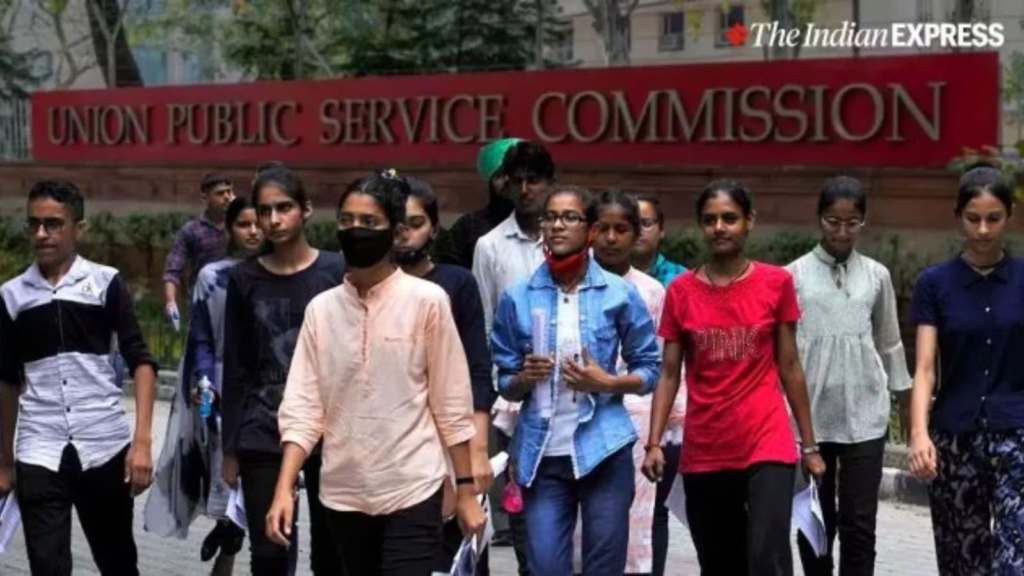UPSC will be launching biometric verification from June 2025 to improve security of its examinations and prevent cases of impersonation and malpractices in its competitive tests. The proposed move of the Union Public Service Commission is designed to improve the transparency and credibility of one of the most elite and competitive selection processes in India.
The decision is the latest in a series of repeated alarms raised over growing cases of impersonation, especially in the Civil Services Examination where candidates have been known to use proxy test-takers. The new regime will probably entail fingerprint and facial recognition technology as part of the registration and attendance process for preliminary and main examinations.
UPSC to implement tech-enabled verification from next cycle
Discussions are going at an advanced level with the National Informatics Centre (NIC) and the Ministry of Electronics and Information Technology (MeitY) to seal the technical infrastructure, as per highly placed sources in the UPSC. The commission has also been in talks with biometric service providers to test the process through pilot runs in some of the centers for the Civil Services Preliminary Examination to be held on June 16, 2025.
After complete implementation, biometric information like thumb impressions and face scans will be taken upon entry and exit from the exam centers. These points will be compared with the candidate’s already uploaded Aadhaar-linked identity to verify authenticity.
Top UPSC authorities have asserted that the authentication process will be first introduced as a compulsory criterion in cities with large numbers of applicants. Depending on its efficacy, it will be implemented across all examination centers in later phases.
UPSC biometric plan receives Ministry support
The Department of Personnel and Training (DoPT), to which the UPSC reports, has approved the biometric authentication idea. A DoPT official said, “This move is important to keep the sanctity of the UPSC exams intact. As the number of cases of impersonations reported every year is on the rise, biometric verification will act as a deterrent.”
The move is also supported by other government departments, such as the Ministry of Home Affairs, which is interested in ensuring only worthy candidates join vital services such as the IAS, IPS, IFS, and IRS. Another source at the commission said trial tests carried out earlier this year had yielded encouraging accuracy rates with very few logistical problems.

UPSC: Will biometric authentication pose problems for real candidates?
This hard-hitting question has been raised by many aspirants and teachers in the wake of the impending changes. While the UPSC biometric authentication program is likely to strengthen exam integrity, issues still hang fire over accessibility, privacy, and data protection.
A few candidates from rural backgrounds and outlying areas have raised concerns regarding system failure and delays during admission, particularly in centers with less strong internet connectivity. The UPSC has responded by clarifying that contingency measures, including offline backup authentication and manual verification in exceptional circumstances, will be adopted to ensure that no genuine candidate is disproportionately impacted.
Data privacy experts have also requested that UPSC establish clear policy guidelines for the storage, access, and de-collection of biometric data. The commission has stated that all the biometric data collected will be encrypted and stored securely in accordance with the Personal Data Protection Act, which is likely to be enforced later this year.
Exam centers being upgraded for biometric readiness
To make this digital shift a reality, UPSC has started to upgrade the exam center infrastructure in Tier-1 and Tier-2 cities. As many as 500 centers are likely to be fitted with biometric kits comprising portable fingerprint scanners and AI-driven facial recognition cameras by May-end.
State Public Service Commissions also received briefing on the shift, as some of them can be expected to take a cue from UPSC in implementing biometric processes for their state-level recruitment tests.
Coaching institutions have begun counseling students regarding the transition of procedure that is expected to happen. Most of them are already running mock drill sessions to mimic biometric entry and verification procedures to prepare aspirants for the new system.
Opposition and feedback from student groups
Though the decision has been received well by most stakeholders, some student organizations have protested the timing and announcement of the new policy. They contend that the announcement should have been made at the start of the calendar year so that aspirants would have sufficient logistical preparations time.
Specifically, applicants who are possibly lacking recent Aadhaar credentials or belong to regions that have limited access to digital resources are demanding relaxation or a longer rollout schedule. As a response, UPSC has assured to establish regional help desks and Aadhaar correction kiosks in coordination with UIDAI to aid such applicants prior to the preliminary exam.
Implications and long-term roadmap
Once biometric authentication becomes the standard, UPSC anticipates lowering impersonation case risks by more than 90%, thereby safeguarding the merit-based nature of Indian civil services. If the model is a success, it could also be taken as a benchmark for other national recruitment agencies like SSC, UGC, and RRBs.
In the longer term, UPSC can adopt biometric verification at all levels of the examination process, right from interview rounds to document verification and service allotment phases. A digital audit trail for each candidate can simplify the entire recruitment process and eliminate bogus entries.
UPSC is also considering integration of the biometric system with AI-based behavioral monitoring for identification of suspicious behavior such as unusual body language or facial expressions during the test.
The UPSC biometric authentication strategy represents a turning point in the process of transforming India’s high-stakes testing environment. If implemented cautiously and equitably, it is likely to maintain the integrity of the examination procedure alongside adopting safe and transparent technological advancements. All eyes will be on the commission in the coming weeks as June nears to observe how smoothly this new system is implemented and received by the large body of civil service candidates.
ALSO READ
UPSC NDA 2 Results Finally Out!